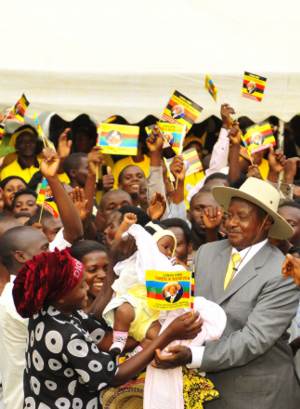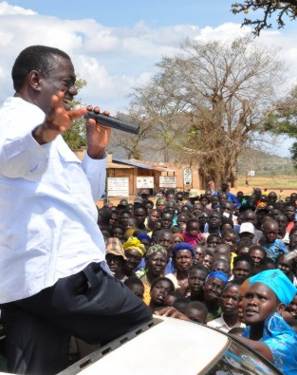|
Uganda Politics | Economy - Development Huge Uganda election funding questioned
A 3 February press statement by the International Monetary Fund (IMF) stated that a team from the Fund would visit Uganda in June 2011 to examine an economy that has experienced skyrocketing prices and hard currency shortage in a dash for Mr Museveni to win elections.
Government spending was reported to have skyrocketed after reports that the opposition was receiving great amounts of external funding, allowing it to field more candidates than ever. The opposition fielded nearly 350 MPs of the 405 seats and 80 district heads. In contrast NRM fielded 400 MPs and 112 district heads. Security sources had reported that Rwanda had wired at least US$ 2 million to the opposition FDC party. NRM spokesman Ofwono Opondo recently told 'Capital Radio', a private radio station in Kampala, how the FDC had received US$ 5 million from its external backers. On 8 February, government charged three members of the minor opposition Democratic Party with terrorism for receiving money from abroad for party activities. Apparently, the alleged Rwandan funding could have been on a tit for tat basis. Kigali was angered when Uganda allegedly financed President Paul Kagame's opponents during the recent elections there. The reports of funding from Rwanda came amidst NRM debates on how to rein in on opposition party funding. Ugandan law limits external funding to shilling 400 million. The NRM also wants the state to fund parties, which the opposition dismisses as a paltry sum that could deny them dignity and limit its main sources of funding. The 2011 election events, with its waste spending, nevertheless have sparked a debate over party and election funding in Uganda. By Crespo Sebunya © afrol News - Create an e-mail alert for Uganda news - Create an e-mail alert for Politics news - Create an e-mail alert for Economy - Development news
On the Afrol News front page now
|
front page
| news
| countries
| archive
| currencies
| news alerts login
| about afrol News
| contact
| advertise
| español
©
afrol News.
Reproducing or buying afrol News' articles.
You can contact us at mail@afrol.com









